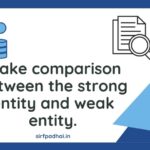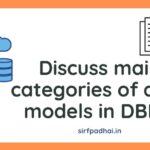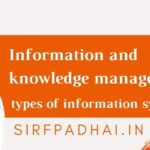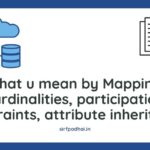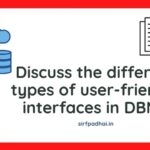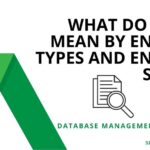Make comparison between the strong entity and weak entity.
Make comparison between the strong entity and weak entity.OrHow are strong and weak entity sets represented in the E-R diagram? Explain with an example.OrWhen...
Entity relationship model in DBMS
Entity relationship model in DBMSINTRODUCTIONThe requirements statement is the first input that is given to the System Analyst for building the intended system for...
Advantages and disadvantages of DBMS
Advantages and disadvantages of DBMSHello friends! Today I will tell you about the Advantages and Disadvantages of DBMS in this post, and will also...
How is the databased approach different from the file based approach?
How is the databased approach different from the file based approach?OrExplain the difference between a file oriented system and a database oriented system.Or...
Discuss main categories of data models in dbms| types of data models.
Explain the various data models briefly with a example.One data model can be distinguished from other on the basis of the way relationship among...
information and knowledge management (types of information systems)
information and knowledge managementData is a collection of raw facts and figures. Whereas information is the result of data processing which can be used...
DBMS course syllabus-CS-502 – Sirfpadhai
DBMS course syllabus-CS-502DBMS Management systems.Database management systems constitutes an integral part of the curriculum of the undergraduate course in Computer Science and forms...
what u mean by Mapping cardinalities, participation constraints, attribute inheritance.
(1) Mapping Cardinalities:- Mapping cardinalities can be defined as the number of entities to which another entity is associated via relationship set. Binary relationship...
Discuss the different types of user-friendly interfaces in DBMS
Discuss the different types of user-friendly interfaces.Ans. User-friendly interfaces provided by a DBMS may include the following-(i) Menu-based Interfaces for Browsing -These interfaces...
What do you mean by entity types and entity sets?
What do you mean by entity types and entity sets?Ans.An entity type defines a collection (or set) of entities that have the same...


